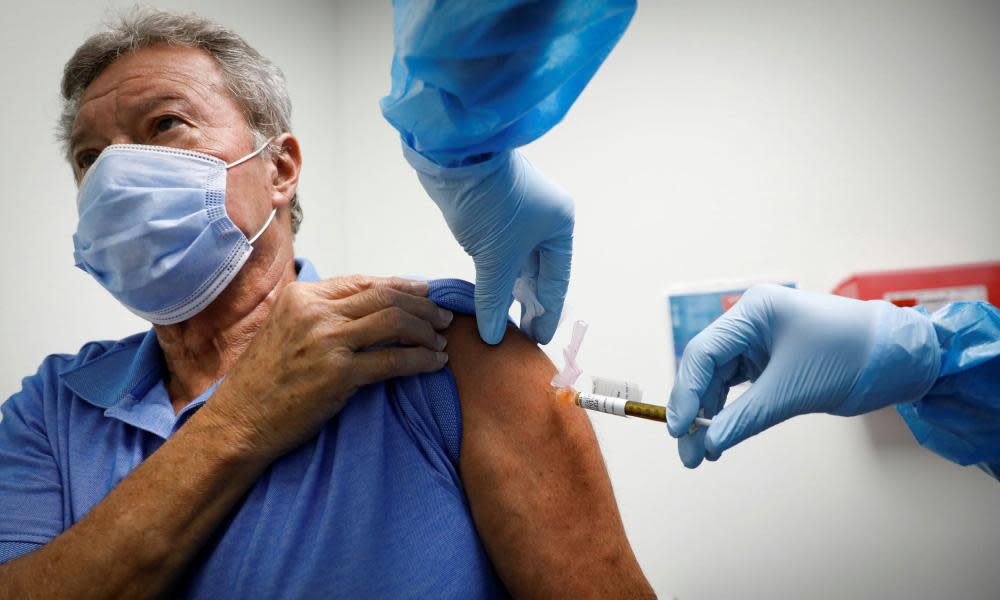The next pandemic is on its way. Coronavirus must help us prepare for it

We are at a crossroads. As the impacts of Covid-19 continue the world over and the second wave moves through Europe, we have a choice to make. Will we simply respond to the here and now, or do we take a moment to stop, look up and see beyond the horizon of this pandemic towards the next one?
Because there will be a next one. Covid-19 is neither the first nor the last health emergency we will face. My fellow scientists estimate that we will face a pandemic or health emergency at least once every five years from here on. There is a chance that this is the optimistic scenario. The reality could be far worse.
Recognising this, we can, and must, say “never again”. We must do better to identify the next health threat, respond to that threat before it becomes an epidemic or pandemic, and if it does, recover in a way that does not exacerbate health, economic and social inequalities.
So how do we do better? Looking back over my time as the chief medical officer of England, I know that the answer comes in two parts: we must capture and share lessons learned now so that we do not repeat them again, and we must force ourselves to think and act differently.
It is inspiring to see one of the largest mobilisations of the global medical community in search of a vaccine, therapeutics and diagnostics. This effort is a time-critical endeavour and one that rests with some of our best medical minds. But beyond the search for an exit route to this crisis, our thoughts must turn to what we can do for the next: what preparations could we have made five years ago that would have better protected us against this outbreak? What have we already learned from this current crisis to inform our understanding of future health emergencies? How can we harness today’s sciences for tomorrow? How do we ensure that we are better prepared next time?
I am convinced that the answers to these questions (and more) can be found only through inquiry by minds from outside and inside the traditional public health ecosystem. I sat on the executive board of the World Health Organization for two years and saw from that experience how preparedness requires the input of individuals across a range of disciplines and sectors. Our economists, our behavioural and molecular scientists, our data experts – these and others are all critical players in the promotion and protection of global public health. We need to reject siloed thinking. We need to leave barriers behind. We need to question assumptions about who can help in this crisis and open our horizons for change. Analysis that extends beyond geographic, disciplinary and organisational boundaries has huge potential for all of us, everywhere. After all, the solutions we need could come from anyone and anywhere.
So we must foster boundary-spanning insights and innovation through groundbreaking collaborations across society and between sectors. This is why I am proud to have launched an initiative that brings together some of the world’s best thinkers, promotes the use of advanced analytics, and enables unparalleled access to data that will help develop and drive solutions so that we can protect 1 billion more people from health emergencies. The Trinity Challenge fosters collaborations between organisations and individuals across sectors: it is a coalition of data science and public health where the outcomes and benefits will be made global and accessible to all. The founding members range from Microsoft to Imperial College London, from Tencent to Google, from GlaxoSmithKline to the Bill & Melinda Gates Foundation.
By tapping into the power of diverse data and insights, and focusing on the three key streams of identification, response and recovery, the Challenge seeks to bring about new ways to better predict and prevent outbreaks and improve the economic and social responses to health emergencies.
What solutions are we looking for? Imagine if we had an early warning system that could help us identify the medical, environmental or behavioural trends that indicated an impending health threat; for example, the analysis of sewage could have warned us about Covid-19 long before hospitals had been able to make any connections to the virus. The location, timing and type of emerging risk can all be better understood with the use of data. Likewise, there are also many insights we can take away from our own personal experiences of Covid-19, and with the help of behavioural science experts we can tell which intervention measures are most effective. We need to ask questions such as: what message, from what person, on what platform, at what time, means I will now wear a face mask? Finally, the frontier of new economic thinking can be applied to ensure that the road to recovery does not exacerbate existing inequality or levels of poverty in the process.
Humanity has the means to ensure that a pandemic like Covid-19, disrupting and destroying lives and livelihoods, never happens again. However, as Einstein warned us: “We cannot solve our problems with the same thinking we used when we created them.”
This is a moment in history when we have a chance to think outside the box. We have not only the responsibility to do better but, for now at least, we have the opportunity.
• Sally Davies is master of Trinity College, Cambridge and a former chief medical officer for England

 Yahoo News
Yahoo News 
